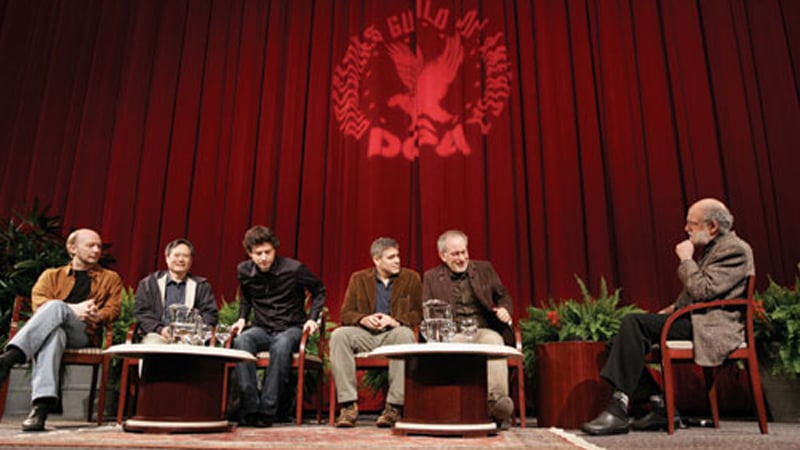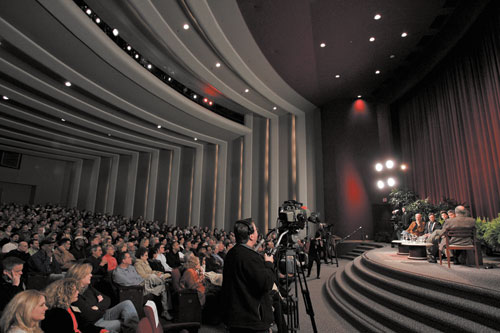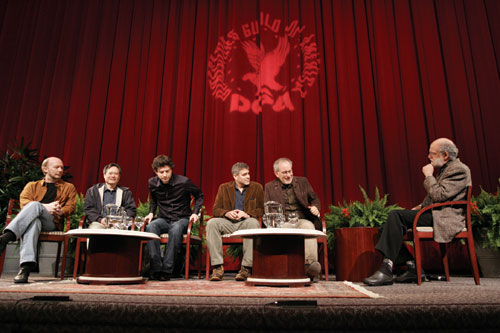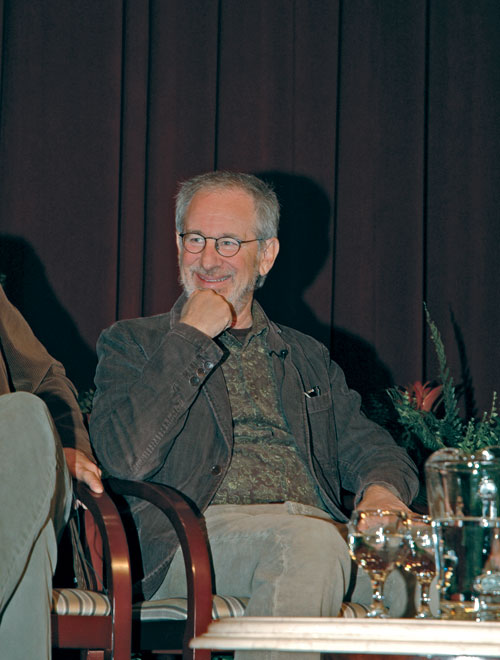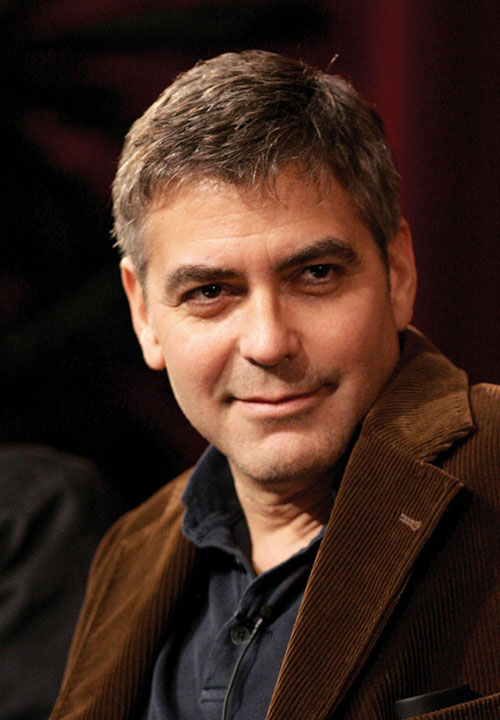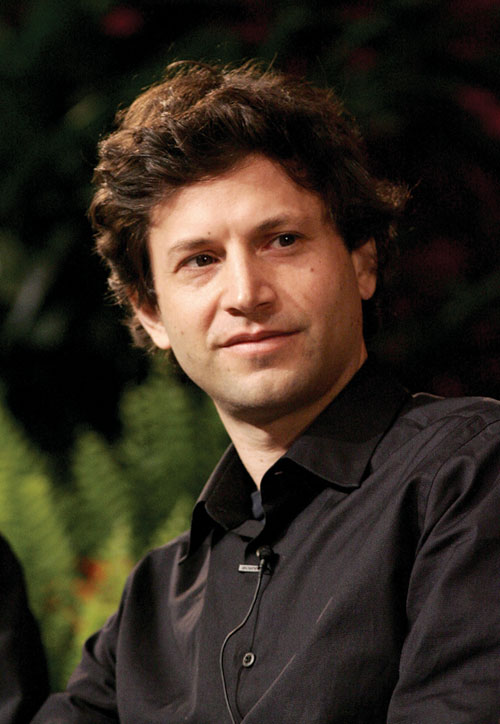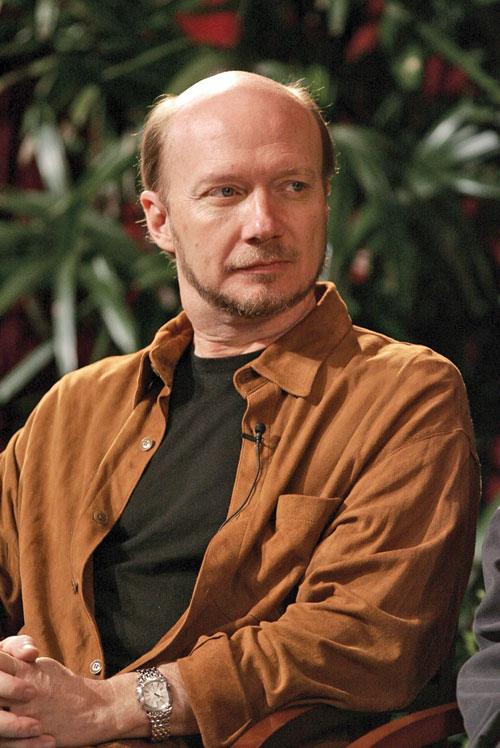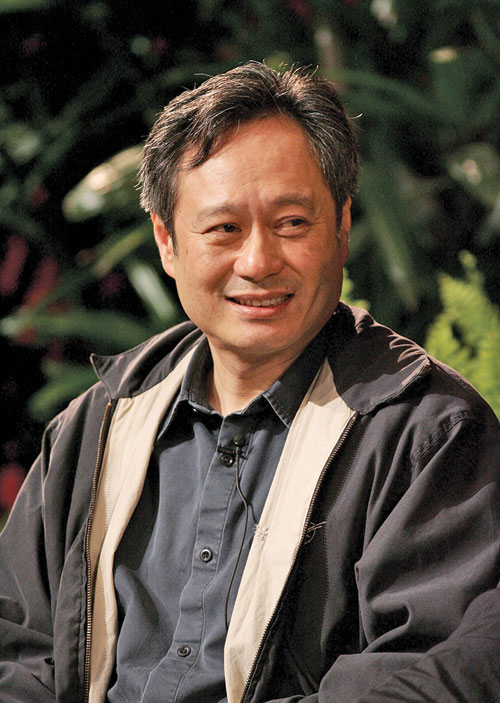“What makes this event special and so clearly popular, is the rare opportunity to see the interplay between five very successful directors and hear them compare and contrast their approaches to bringing a film to life,” said DGA President Michael Apted in welcoming the audience. “These filmmakers have all done brilliant work on movies that demonstrate the excellence and diversity of filmmaking today.”
For the fifteenth year Kagan led both the filmmakers and the audience on an expedition of discovery through the process of creating a film capable of receiving a DGA Award nomination. Each of the directors gave their responses to questions about the decisions they made in each step along the way. Perhaps the strongest connecting thread of a quintet of films whose stories could not be further apart, was made in Kagan’s initial question to the filmmakers.
“There’s something interesting about all five films,” noted Kagan. “All five of you have made films that deal with social and political issues. These are substantive content films. I’m interested in what you would like audiences to be getting from your film.”
“My film asks a very difficult—perhaps impossible—question to the audience,” said Spielberg about Munich. “Given everything that you thought you knew about the Middle East and about the conflict between the Palestinians and the Israelis, is it possible that you can come into the theatre and leave your certainty behind while you watch what the film is attempting to question? The film is a series of questions. We don’t have the temerity to try do solve these problems — the world has been trying to do that for 50 years. I just want the audience to see it through a lens. A subject like this, which dares to bring up very difficult and painful questions, asks a lot from the audience. One of the things it asks is “Will you be patient with us?’ The problem we’ve been having in the Middle East is that people don’t listen. We tend to become entrenched in our own positions and just stay there. There’s no movement to the center, and peace can only be achieved from the center. The only time peace can be achieved from the extremes is all out war, where there is a victor and a vanquished.”
Clooney explained that he had deep personal motivations that prompted him to make Good Night, and Good Luck. “In the lead up to the Iraq War, I was vocal about the idea that we should have some questions about sending our troops in and was on the cover of a magazine and called a traitor. So it seemed that the best way to have that conversation was to put into a film. This is such a cyclical thing, using fear to attack civil liberties, like when we rounded up Japanese Americans after Pearl Harbor. We tend to learn after awhile, but it requires the fourth estate to ask those questions. My father is an anchorman and I grew up around the news. I was very familiar with the story of Edward R. Murrow and Senator McCarthy. So I started reading those old Murrow pieces and listening to him say ‘we should succeed not only in the area of bombs, but in the area of ideas,’ words that someone wrote in 1954, better than anything anybody could say today. So I thought, this is a great place to house this dissent, without being on-the-nose and saying I’m right. I welcome all arguments to this issue, but I won’t be told I’m a traitor for asking those questions. Now people are allowing a certain level of dissent in again, but in the time we started making these films there weren’t a lot of people encouraging us to make these films. But that’s the beauty of it, these films got made and I’m honored to be up here with people who stuck their necks out.”
Miller explained that his prime motivation in Capote was to show the two sides of America. “The film attempts to show the superficial side of a character, and a country through Truman Capote. You see who this person is in his public self, and then we peel back the layers to get to that part of a person inside that might be concealed for a lifetime. The film aspires to do something that is often the domain of a novel — that is to find a way to express something that is never made explicit in a life. This is a very internal tragedy of a charismatic public figure and that challenge dictated the creative style, which communicates that there’s something going on here and you don’t know what it is at the beginning. We had to find a way to get past the public America that we all understand. He is both those Americas. To me this film is about more than Truman Capote or America. It’s about someone who wants something so badly that he becomes insensitive to what he’s trampling upon to get it. I wanted to make something that was sobering about how our passions can intoxicate us and what we lose sight of in the pursuit of that.”
“When I started writing this, I didn’t know why I was doing it and why this was coming out of me,” said Haggis about Crash. “What did bother me a lot is there was a theme. My questions were all about things that troubled me personally, things that I thought about myself — and not the good things, but the darker side of good people. I wanted to explore, how good people can do terrible things. I wanted to do a film about the contradictions we all embody because, as human beings, that’s who we are. We can be the hero and the villain in our own lives and we are from moment to moment. In movies we often like to put the white hats on this group of people and the black hats on that group of people, and I just wanted to fuck with that a little.”
Ang Lee’s response left both the panel and the audience in stitches when he joked, “There are obvious things like don’t beat up gay guys... And wives, please understand when he goes out fishing with his buddies…” Then turning serious, he said, “I don’t want to mess with American icons of the real west, but what struck me is when I read this as a short story I got choked up. I wanted to do justice to that and share it with the audience. Why I got choked up is a mystery and that’s why I made this movie. Gay ranch hands in Wyoming is about as far from me as possible. So why did I cry? What is the connection? I think it takes a movie to find out. Brokeback Mountain is about the illusion of love and I was dealing with both sides of America: one is Jake, and one is Heath. One is conservative and the other is ‘go for it!’ I think the more enigmatic love is, the more illusive and existential, the grander it looks, like a western. All these films are about asking the big questions, but none of us give statements. I think that’s what we need in this world. We pretend we have the answers, especially politicians. We simplify and categorize people. But let’s ask the questions and respect the unknown. That’s what life is.”
With that wonderful start, the panel was off and running through a morning of questions and answers about the pre-production, production and post production phases of each of these excellent films. It was a truly inspirational symposium that offered both a deeper insight into each of these motion pictures as individual works of art, and a behind-the-scenes view of five directors at the height of their craft.
